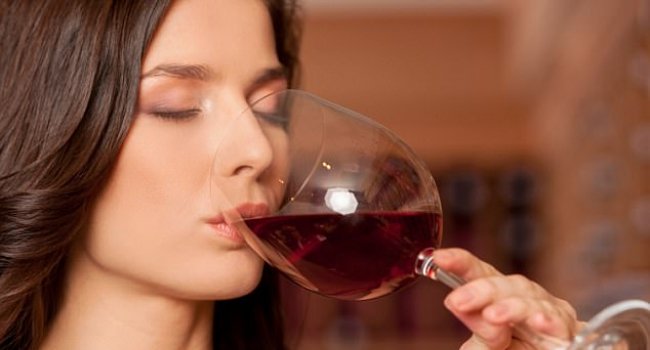We know our menstrual cycle can help explain the flux in emotions – but now it seems hormonal ups and downs can influence when we fancy a tipple.
The Daily Mail tells about new research, according to which, women’s brains crave alcohol when their estrogen levels are highest.
This is around day 12 of your cycle, just before ovulation and about a week after your period.
Then there is another rise – although not as high – at around day 20-22, so roughly a week before your next period is due.
Experts say that indeed hormones may play a significant role in the development of addiction in women.
‘When estrogen levels are higher, alcohol is much more rewarding,’ said lead researcher Amy Lasek, assistant professor of psychiatry at the University of Illinois at Chicago.
‘Women may be more vulnerable to the effects of alcohol or more likely to overindulge during certain stages of their cycle when estrogen levels are higher, or may be more likely to seek out alcohol during those stages.’
How your hormones fluctuate
Estrogen levels rise and fall twice during the menstrual cycle.
Day one is classed as the first day you bleed. During your period, in the first few days of your cycle, your estrogen levels are lowest – in theory when you’ll least crave alcohol.
Starting around day 4 to 5, they gradually begin to rise to help prepare your body for ovulation.
Around cycle day 10 it increases further and there’s a surge around day 12-13, when levels quadruple – when you will most want a drink according to the research.
Then the hormone falls almost all the way back to pre-surge levels.
Around 24 to 36 hours after the estrogen surge, you release an egg, typically around day 14.
Then it begins to rise again one to two days after ovulation, peaking about a week later around day 20-22 – when you may well fancy a drink again.
If pregnancy does not occur, you’ll have low levels by day 28.
How the research was carried out
Dr Lasek and her colleagues examined the relationship between estrogen and in female mice.
They used naturally cycling rodents that were allowed to go through their normal estrous cycles, akin to the menstrual cycle in women.
They were given alcohol and electrodes recorded the activity of individual dopamine-sensitive neurons in their brain.
They found that neurons in the reward center of the brain – known as ventral tegmental area, or VTA – fired most rapidly in response to alcohol when their estrogen levels were high.
Studies indicate that gender differences in psychiatric disorders, including addiction, are influenced by estrogen, one of the primary female sex hormones, say the researchers.
‘We already know that binge drinking can lead to lasting changes in the brain, and in women, those changes may be faster and more significant due to the interaction we see between alcohol, the VTA and estrogen,’ said Dr Lasek.
‘Binge drinking can increase the risk of developing alcoholism, so women need to be careful about how much alcohol they drink.
‘They should be aware that they may sometimes inadvertently over-consume alcohol because the area of the brain involved in alcohol reward is responding very strongly.’
The findings were published in the journal PLOS ONE.












